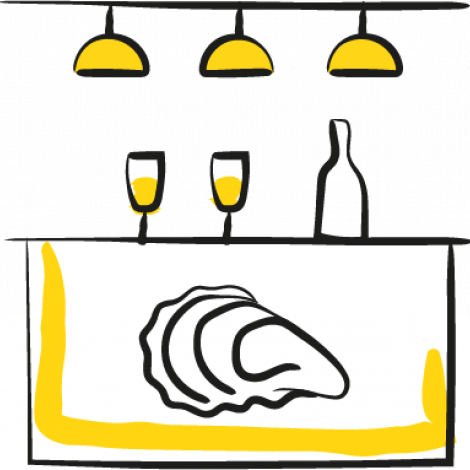Le Bureau des Congrès vous accompagne pour sélectionner les lieux, agences, prestataires techniques qui correspondent le mieux à votre événement.
Envoyez-nous votre demande : notre équipe vous répond sous 24h ! C'est sans frais, et sans engagement.
Plan a sustainable event
Planning a sustainable event isn’t that complicated! A short list of recommendations for a professional event that protects resources, the environment, and the participants. Follow the guide!
1
The choice of venue
You’ll obviously want to choose a venue that meets your requirements, but that is also easily accessible and engages in sustainable practices.
• Accessible by public transport to reduce the travel carbon footprint
• Accessible to people with disabilities
• Find out about the efforts made by the site manager to conserve energy and water and reduce waste.

2
Travel
Encourage green travel options (raise awareness among participants):
• Encourage carpooling
• Encourage the use of public transport (indicate the nearest tram and bus stops, train stations, etc.)
• Encourage the use of bicycles by indicating bike racks, bike rentals, and bike-friendly routes (www.geovelo.fr)
• Use vehicles with a low carbon footprint whenever possible

3
Your booth
Use eco-designed booths, decoration, stage sets and signage in order to minimise the environmental impact of production, use and disposal.
- Think “reusability”
- Use eco-designed material and equipment
- Use local service providers who engage in sustainable practices in order to reduce travel and support the local economy

4
Food service
- Hire caterers who use local, seasonal and ethical products, sourced from local growers and farmers. Our event catering members are strongly committed to sustainable practices.
- Avoid food waste by adjusting quantities to the number of participants, offer reasonable portions and find ways to donate any edible leftovers (still packaged and with no break in the cold chain) to local charities or in-house staff.
- Offer several menus, always with a vegetarian option.
- Limit food packaging waste by avoiding single-use plastic products, disposable tableware, coffee capsules, etc.

5
Waste management
Ensure that waste is reduced, sorted and recycled:
• Minimise packaging, printed documents, unnecessary or wasteful goodies, use washable dishes, reusable decorations, etc.
• Provide clearly visible and labelled recycling bins so that waste can be sorted on site.
• Before the event, contact organisations that might be interested in reusing your decorations, and associations or thrift stores that might be able to upcycle or sell your used items.

6
Promotion
- Avoid using paper promotional materials (invitations, programs, information flyers)
- Encourage people to participate in the ecological transition
- Include an environmental awareness component in online campaigns (e.g. best practices to limit digital impact and online event).
- Inform the public about the initiatives (recycling, biking, accessibility, sustainable eating) at the event via signage, presence of local growers, etc.

7
An event for all
- Ensure physical accessibility
- Choose a disabled-friendly venue and enable participants to inform you of their needs beforehand (e.g. sign language interpreter for physical events, subtitles for virtual events and reusable content).
- Ensure parity among speakers

